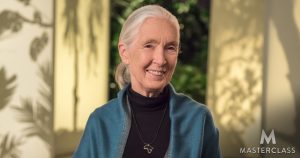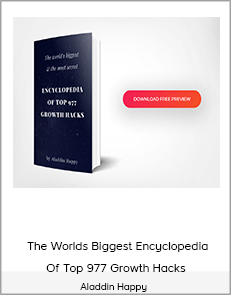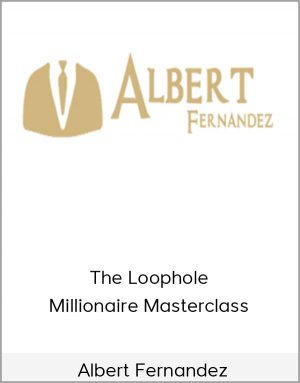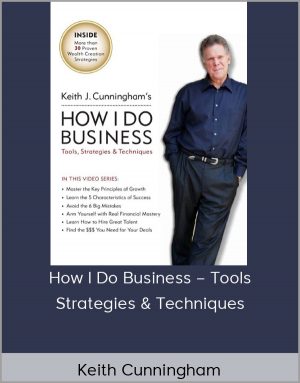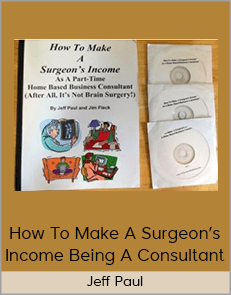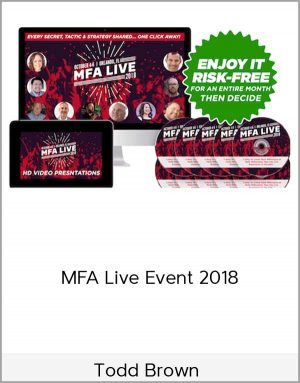
Jane Goodall – Masterclass on Conservation
$60.00$397.00 (-85%)
And due to her willingness to open a dialogue, she’s been able to drive meaningful change in many ways
Jane Goodall – Masterclass on Conservation
Check it out: Jane Goodall – Masterclass on Conservation
Lesson 1: Don’t be afraid to challenge the status quo
Jane Goodall’s masterclass is filled with examples of rejecting the status quo and following her instincts. Her career as a researcher started under the guidance of archaeologist and palaeontologist Louis Leakey. When she travelled to Tanzania, she had no academic training.
What’s more, when she first travelled to Africa, British authorities considered the idea of sending a young woman in her twenties into the jungle so outrageous that she wasn’t allowed to travel without her mother. And so, they initially both went to allow Goodall to follow her dream of working with chimpanzees. Both rejected the commonly held believes of what was considered an appropriate career choice for a woman at the time.
Goodall was also one of the first researchers to give the chimpanzees she was observing names instead of numbers to identify them. The practice remains controversial to this day because names may remove their professional distance to their research subjects.
In her Masterclass, Goodall dismisses this idea, saying that it’s perfectly possible to acknowledge that animals have personalities, minds, and feelings while still maintaining scientific objectivity.
The fact that Goodall initially didn’t have any formal academic training but followed her instincts instead, didn’t hinder her success in the field. Quite the opposite. When she started her research in Gombe, she didn’t feel constricted by the knowledge of decades of scientific tradition. She was free to explore alternative approaches.
Lesson 2: Work towards constant progress, not instant perfection
In one of the Masterclass lessons, Goodall describes visiting a laboratory that was conducting tests on chimpanzees. And if the tests weren’t upsetting enough, the chimpanzees were kept in tiny cages with little room for movement, stimulation, or social interaction. Goodall noticed instantly that the animals were suffering immensely under these conditions.
While Goodall’s goal was to end laboratory testing on chimpanzees and other animals altogether, she also knew that achieving this would take time. So, she worked with scientists in the lab to keep the chimps in a more species appropriate environment and lessen their suffering as soon as possible.
At first glance, Goodall’s decision to work with her opponents seems like a deal with the devil. But only until you start considering the alternative.
If she had decided to demand the end of lab testing right off the bat, it’s unlikely that she would have achieved anything at all. The scientists would have felt attacked by her demands and the lack of understanding of the complex dynamics that led to animal testing in the first place. For instance, many government departments required (and in many cases still require) animal testing for products to be considered safe for humans.
Because achieving this kind of systemic change takes time, Goodall opted to significantly improve the conditions for lab animals while at the same time continuing to work on banning the practice. She chose progress over perfection and therefore managed to make a positive difference much more quickly.
Lesson 3: Be open to have a dialogue with people you disagree with
One thing that is truly remarkable in Jane Goodall’s Masterclass, is the warmth and open-mindedness she brings to any interaction with people, even those she fundamentally disagrees with such as climate change deniers or people who are cruel to animals.
While some people are outraged that Goodall is even agreeing to meet with these kinds of people, she believes that it’s impossible to make a difference if you’re not willing to listen to your opponent’s point of view and at least try to understand their perspective.
And due to her willingness to open a dialogue, she’s been able to drive meaningful change in many ways. For instance, she’s been working with farmers in Nebraska to protect the future of the sandhill crane migration, which is considered to be one of the last great animal migrations on earth. Yet, intensive agriculture and population growth is leading to increasing habitat loss for the birds.
Goodall met with farmers to convince them about the value this unique event is bringing to the area. As a result of her efforts, some farmers started to create space for the animals on their land and even installed bird watching areas to attract tourists, generating another stream of income for them. Her willingness to open a dialogue made a measurable difference.
No doubt, talking to people in real life is much harder than condemning and vilifying people’s actions on social media from the comforts of our lounge rooms. But it’s inevitably also much more effective.
“

